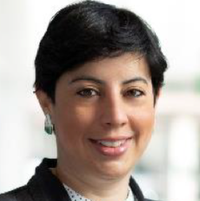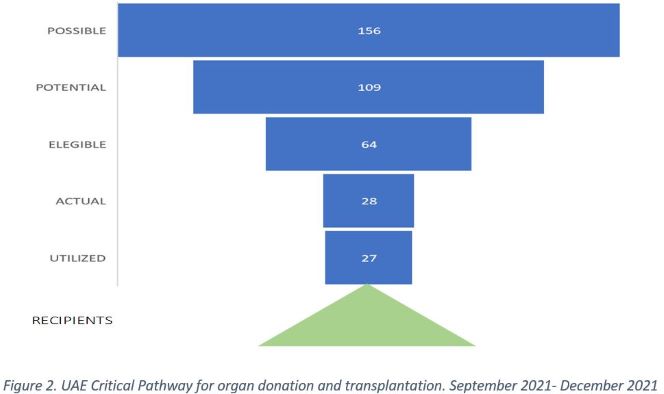
International collaborative project to set-up deceased organ donation system in United Arabic Emirates (UAE): preliminary data
Estephan Arredondo1, Reginaldo Boni1, Ayman Ibrahim2, Eduardo Sousa1, Amina Randhawa2, Carmen Blanco1, Richard Pietroski1, Carles Garcia 1, Jose Maria Dominguez1, Ali Obaidli2, Martí Manyalich1.
1Donation and Transplantation Institute (DTI Foundation), Barcelona, Spain; 2SEHA Abu Dhabi Health Services Co, Abu Dhabi, United Arab Emirates
Introduction: World Health Organization advocates for the development of self-sufficiency in donation and transplantation in all countries. In 2017, UAE initiated its Organ Deceased Donation (ODD) program, after the UAE Ministry of Health and Prevention issued the Decree number 550 on declaration of death, covering brain death diagnosis. It represented a start point to implement the ODD program in the area. Evolution of the UAE deceased donation program is represented in Figure1. Donation & Transplantation Institute (DTI) is a non-profit organization that supports international entities to design and develop programs in the field of organ donation and transplantation. Since September 2021, Abu Dhabi Health Services Company (SEHA) and DTI are cooperating to define and implement an ODD program considering aspects such as consultancy, education, quality, innovation, and research.
Objective: The objective of this study is to describe the achievements after the implementation of ODD program in the UAE.
Methodology: 20 hospitals affiliated to the Organ Donation and Tissue Center (ODTC) participated in the study as well as Transplant Procurement Managers (TPM). TPMs have been involved closely with donor hospitals to build relationships and implement practices to facilitate organ donation, ensuring all donation opportunities are preserved, Hospital Development methodology. In order to train and provide experience to local professionals, capacity development initiatives such as workshops, conferences and other events have been performed by the hand of governmental endorsement.
Results: Updated standard operating procedures (SOPs) and clinical guidelines have been established in the UAE, organ donation evolution from September to December 2021 is represented in Figure 2.

Conclusions: Preliminary results show a major increase (433%) in the number of actual donors after the implementation of “Hospital Development” methodologies, compared with 2020 activity. Main barriers to be faced are unbalanced healthcare infrastructure and coverage, complex healthcare policies, and shortage of trained professionals. Regarding the population, low engagement due to multi-religious and cultural facts and insufficient awareness are the main challenges.

right-click to download
